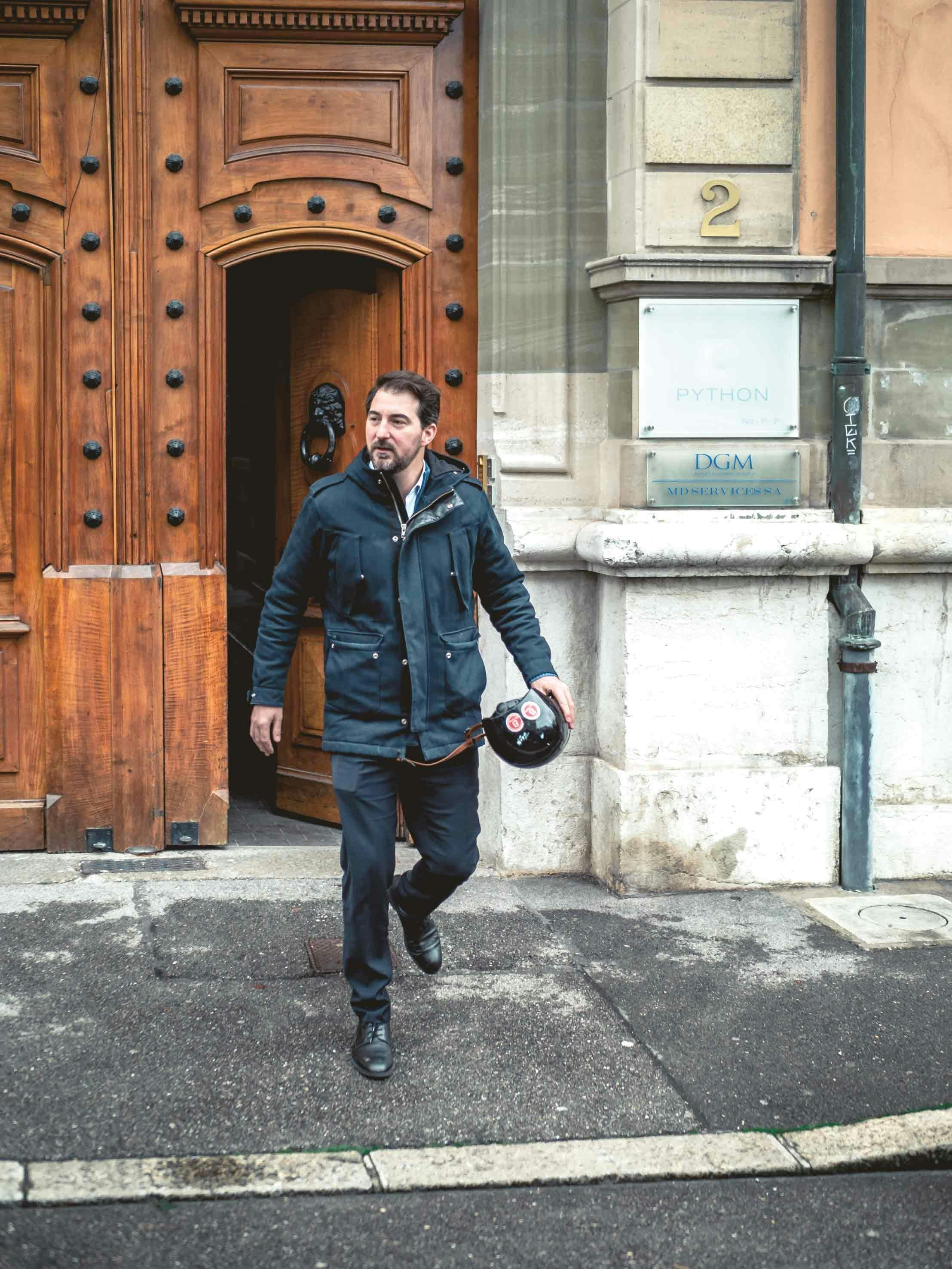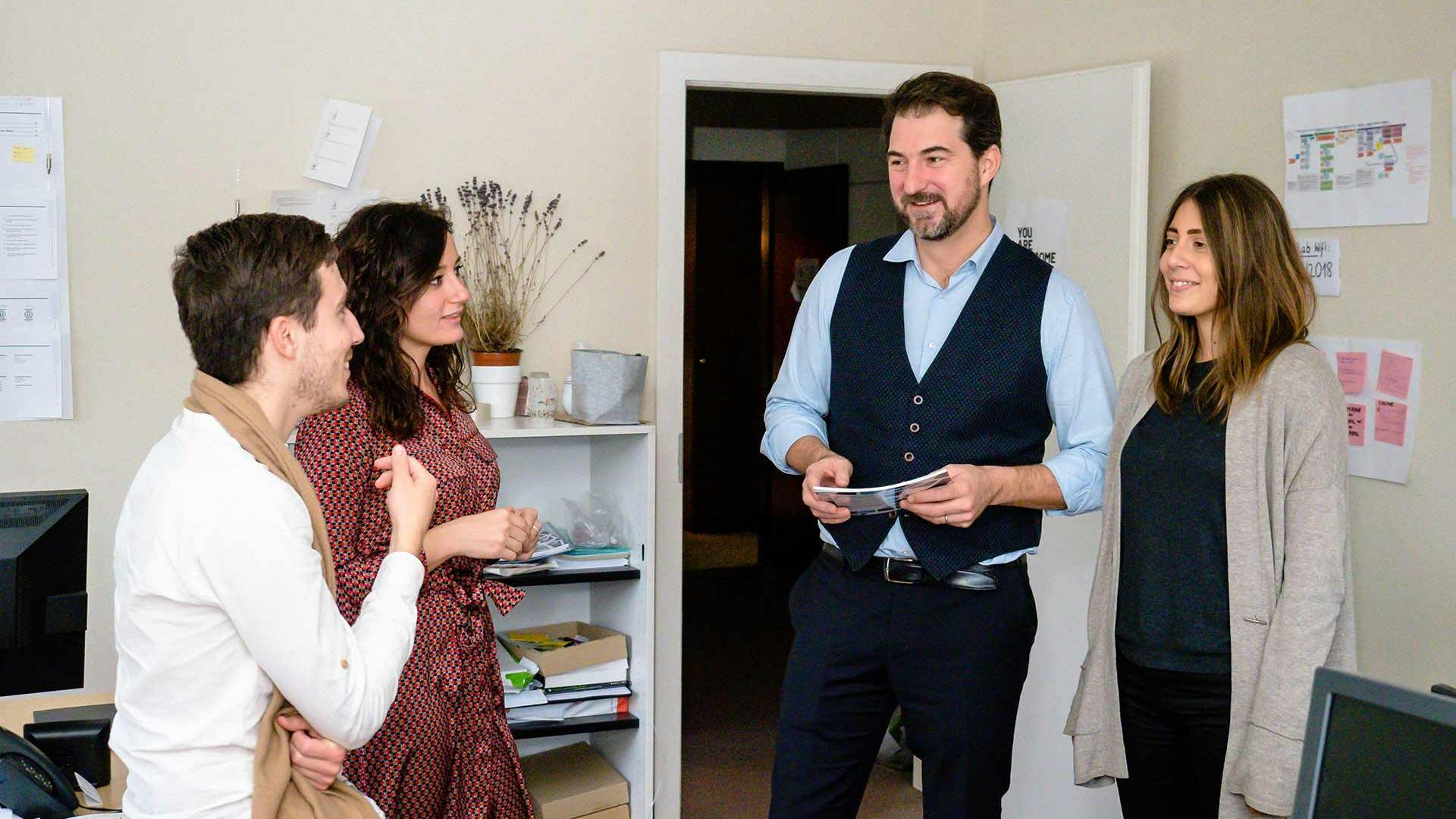Can businesses combine profit with purpose? This impact entrepreneur thinks so
n the face of increasing social and environmental challenges, ‘business as usual’ is no longer acceptable, says impact entrepreneur and founder of B Lab Switzerland, Jonathan Normand.
Every business has the potential to help solve the world’s biggest problems; they just need a roadmap for how to do it.
This is the view of self-described impact entrepreneur Jonathan Normand, who says his main skill is managing complex issues with passion. A former mathematician and master of algorithms, Jonathan spent twelve years working in the financial industry before leaving his job to pursue the precarious life of an entrepreneur.
Disillusioned with the world’s prevailing economic model – that, in his view, only serves to make the rich richer – Jonathan launched his first company Codethic, which aimed to help businesses incorporate social purpose into their DNA, in 2010. He then went on to found the nonprofit B Lab Switzerland in 2017.
Today, Jonathan is working to change the way that profit-making companies operate. In his support for the global B Corporation movement, Jonathan is helping businesses in Switzerland and beyond unite profit with purpose.
We caught up with Jonathan to chat about the global rise of social and environmental activism, his idea of what a successful business is and why entrepreneurs should always consider their “share of the cake.”

Jonathan witnessed firsthand how the global economy was poorly serving many countries and individuals.
Can you please start by giving me a bit of background about yourself and what your career has looked like so far?
Well, I was born and raised in Geneva. I started out my career in 1996 in risk management and operations before spending twelve years working in various financial institutions.
I became chief information security officer at Union Bancaire Privee, a Swiss private bank, in 2006 and continued in that role for two years. It was then that I checked in with myself and thought about what the purpose of my life is and what it is that I want to achieve. I decided to quit my comfortable, well-paid job and turn to the challenges of entrepreneurship.
In 2010, I set up my first company, Codethic, a consulting firm that helps businesses embed purpose, good governance and corporate social responsibility into their strategy. Then, in 2013, I decided that I wanted to participate in setting up B Lab – the nonprofit behind the B Corporation movement – in Europe. Now, I dedicate my life to supporting B Lab in the Swiss region and promoting the B Corp movement globally.
Why did you choose to leave the financial world in 2008 to found a company?
The turning point for me was in 2007, the year before the global financial crash. As I was on the inside of the financial world at the time, I witnessed firsthand how the global economy was poorly serving many countries and individuals.
The way that finance operated then, and continues to do so now in some ways, seemed to me to be completely disconnected from purpose. It became clear to me that we need to propose an alternative to this economic model, instead of just helping companies and individuals with money get richer. I think having this insight into the underworld of the financial industry gave me the strength and reason to dedicate my time to something much more purpose driven.
At the moment, there is too much inequality in our economy, and we want to offer businesses an alternative to being solely profit-driven.
Can you explain more about what B Lab does and what its mission is?
The core purpose of B Lab is to teach businesses to be a force for good. For that, you need standards and measurements. B Lab provides companies with the tools to measure the positive impact they are having – or seeking to have – on their local communities, the environment and society at large.
For example, we have a free and confidential online questionnaire called the B Impact Assessment, which is currently used by more than sixty thousand companies to help them assess their impact and continually improve their social and environmental performance. Businesses that are able to demonstrate that they can balance making a profit with benefitting people and the planet are then awarded a B Corp certification.
But, more broadly, our aim is to set up the B Corp movement and develop a new market infrastructure that does good in the world. At the moment, there is too much inequality in our economy, and we want to offer businesses an alternative to being solely profit driven.
Currently, we have 3,100 companies representing 150 industry sectors from sixty countries that have earned B Corp certification, from large companies like Patagonia and Ben & Jerry’s to smaller startups such as Ecosia, the search engine that plants trees.
Another example is Fairphone, a company that makes ethical smartphones. What I like most about them is that they responsibly source their materials and make sure that they have been produced in a way that hasn’t harmed any people or the environment. They’re also identifying opportunities for improving material supply chains.

Over 3,100 companies representing 150 industry sectors from sixty countries have earned B Corp certification.
How do you think the role of businesses in society is changing? Do you feel that companies are becoming more aware of their social and environmental impact?
There is definitely a global cultural shift underway. You only have to look at people going out on the street and protesting in Chile and Catalonia to see how collective consciousness around issues of social justice is rising. There are major changes happening, and people want to help each other. I like to see it as the invisible starting to become visible.
In addition to this, people are beginning to demand better from the companies they’re working for, investing in or buying products and services from, and they’re really pushing the boundaries. I know this because B Lab has gotten so many requests from businesses that want to improve their social and environmental performance in the last two years.
Recently, I gave a talk at one of the major economic conferences in Switzerland in front of six hundred entrepreneurs. I can tell you that nearly all of them said that addressing social inequality is now a key part of their business strategy.
There are major changes happening, and people want to help each other. I like to see it as the invisible starting to become visible.
There's a lot of work to do, for sure, and it will probably never end, but if we can influence the minds of some of the major operators of our economy, this could have a ripple effect and push companies and individuals to follow.
What is your idea of a “successful” business?
A successful business is one that’s connected to the world around them, that takes into account the interests of their stakeholders – their employees, customers, suppliers, investors, the local community and the environment – that invests in sustainable innovation and the regenerative economy and tries to balance making money with doing good. To be honest, I can’t imagine why a business today wouldn’t be driven by a balance of profit and purpose, when companies have all the ingredients to build a strong and resilient business model.
At B Lab, we’re trying to help businesses understand the unique opportunities they have to address social and environmental issues. An entrepreneur by definition is someone that takes risks and constantly has to adapt and innovate. Every business can adapt to the ever-changing demands of society; they just need a new narrative.
What professional advice would you give to younger, less experienced entrepreneurs?
I think it's necessary for businesses to question what their purpose is. A product may look nice and sell well, but does it support local environmental initiatives or help underserved populations in other parts of the world? I would always encourage entrepreneurs to design their value proposition in alignment with the seventeen Sustainable Development Goals as these are a good roadmap for how businesses can create impact and stay connected with their stakeholders.
[ Read also: “Not just profit-driven”: Meet the Swiss founder cultivating healthier corporate cultures ]
The second piece of advice I'd give to entrepreneurs is to think about your share of the cake.
I've supported more than one thousand businesses in the past ten years, and I've often come across founders that try to run a company on their own without thinking of sharing the ownership.
Every business can adapt to the ever-changing demands of society; they just need a new narrative.
If you want to keep the cake to yourself, the journey will be difficult, and there’s a chance that you may lose the whole cake; whereas, if you shared a piece of the cake and built a partnership with someone you trust, they could support you and bring additional value to your company.
What’s next for B Lab? Any exciting plans or challenges that may be ahead?
Right now, our overarching aim is to further the B movement, not just in Switzerland but globally. This means that we need to engage global pioneers and leaders and also individual companies.
B Lab and the UN Global Compact are now launching what we refer to as the SDG action manager, which is designed to help businesses identify and measure how much they contribute to the SDGs.
We are also partnering with the Swiss government to launch a nationwide engagement program called the Swiss Triple Impact. This three-year program aims to accelerate private-sector engagement in addressing the SDGs and aligns with the Swiss Agenda 2030. This initiative has been the product of two years of hard work, so I'm very proud of it.
It seems that companies are moving away from the traditional “business as usual” approach. That means we now have to step up. At B Lab, we want to help entrepreneurs create what I call a “conscious pathway” and help them realize that businesses can be a force for good. For that, we need movement, we need energy and we need joint force.
This interview was originally published in Startup Guide Switzerland in January 2020.
Main photo: Will Truettner / Unplash
Profile and team photos: Startup Guide Switzerland

